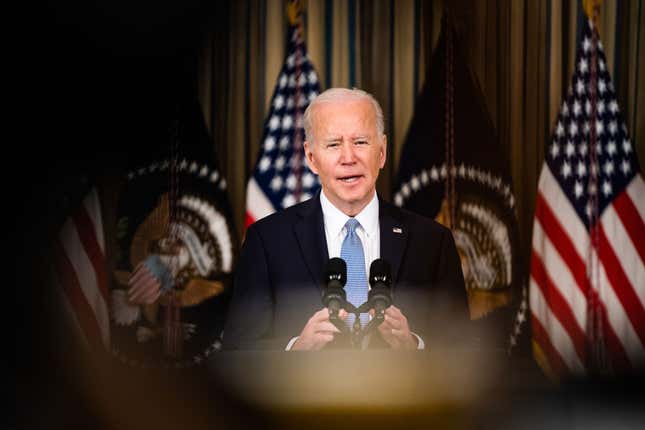
When the Department of Education instructed companies not to send notices to borrowers about payments resuming, it was a question of when federal student loans would be paused again by The White House. Bloomberg is reporting the Biden administration plans to freeze federal student loan payments through August 31. The announcement may come as soon as Wednesday.
Initially, payments were scheduled to resume after May 1. The action applies to more than 43 million Americans who owe a combined $1.6 trillion in student debt held by the federal government, according to the latest data from the Education Department. The Government Accountability Office reports that half of those Americans are at risk for delinquency. Interest rates are expected to remain at 0% during that period.
Sen. Patty Murray (D-Washington) spoke about the need to give Americans more time and for the government to rethink the system as a whole.
“It is ruining lives and holding people back,” she said in a statement last month. “Borrowers are struggling with rising costs, struggling to get their feet back under them after public health and economic crises, and struggling with a broken student loan system — and all this is felt especially hard by borrowers of color.”
In March, the Federal Reserve Bank of St. Louis published a blog post concerned that resuming payments would burden borrowers who faced financial hardship during the pandemic. They specifically cited racial and ethnic inequities, noting that Black Americans have to rely heavily on financing to go to college.
“Serious delinquency rates for student debt could snap back from historic lows to their previous highs in which 10% or more of the debt was past due,” the bank said.
The pause itself has allowed Americans to “pay down debt” and boost credit scores.” However, a long-term solution is still to be figured out. Some Senators claim the President has the power to cancel $50,000 worth of debt for each person through executive action. However, there are questions surrounding this in terms of legality stemming from the Higher Education Act, signed in 1965. Not only are there narrow conditions under which student debt may be forgiven, but an executive action like this might get overturned in court.
Some actions that have been taken are expanding existing debt forgiveness programs and cancellations for borrowers who have permanent disabilities or were defrauded by their schools. President Biden has stated he supports canceling up to $10,000 in student loan debt, but urges that this should be an act of Congress. It is of note that Republicans are primarily opposed to student loan forgiveness, so that might be challenging given the current makeup of the Senate.

